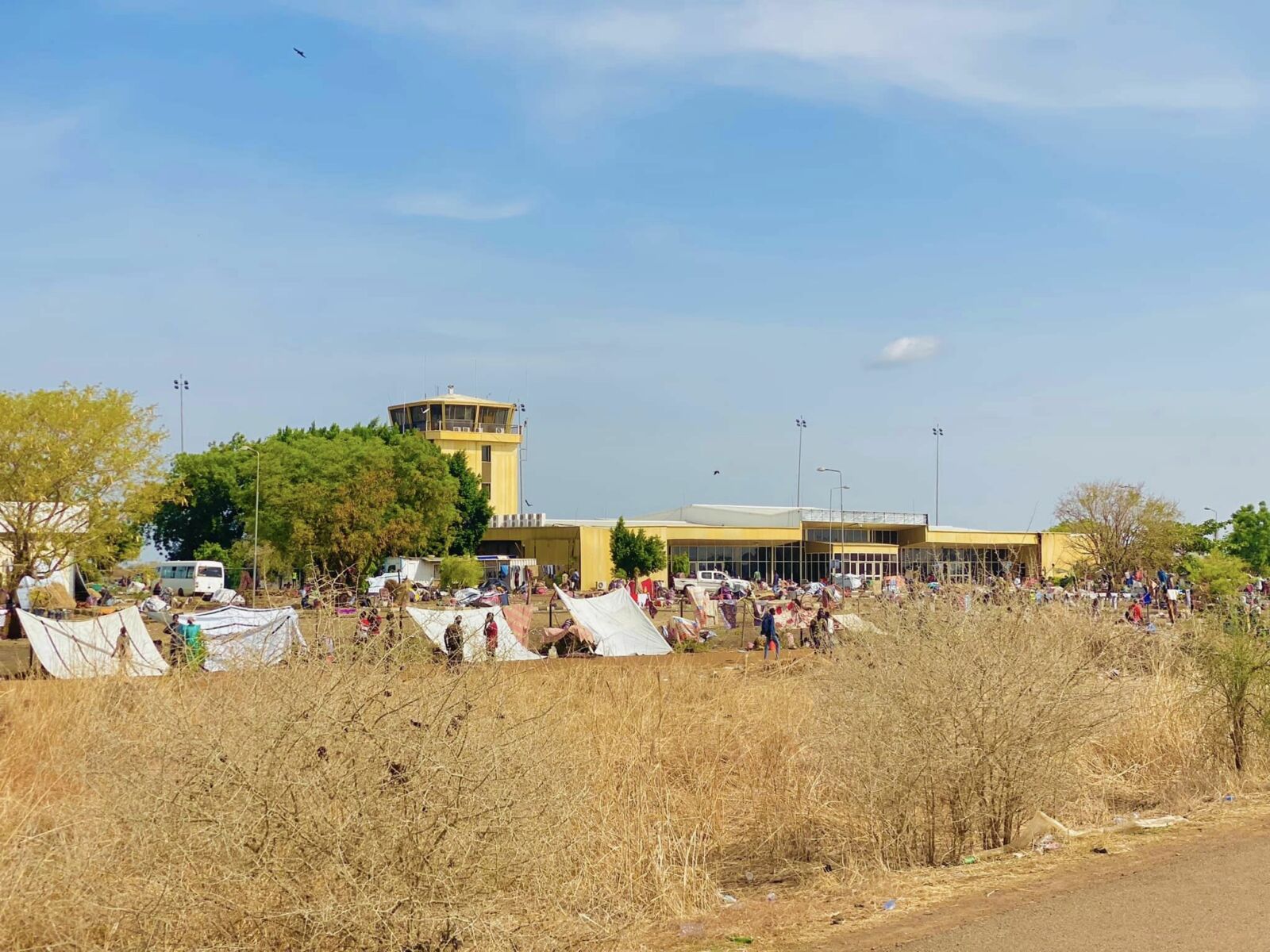South Sudan airport becomes camp for Eritreans fleeing conflict

Paloich Airport in South Sudan has become a makeshift camp for thousands of refugees fleeing the neighbouring Sudan conflict. They now live in dire conditions without basic amenities such as running water, toilets, or kitchens. Many of these refugees are Eritreans, who had sought asylum in Sudan before being displaced once again due to ongoing violence. They are now waiting for the opportunity to board a flight out of the area.
The United Nations estimates that over 136,000 Eritrean refugees and asylum seekers were in Sudan before the conflict erupted. Many are reluctant to reveal their identities to journalists due to fear of retribution from the Eritrean authorities. Eritrea is a highly restrictive state that controls almost every aspect of its citizens’ lives, and many are trying to avoid compulsory national service.
Tesfit Girmay, an Eritrean who arrived in Paloich five days ago, said, “The kind of life around here, you wouldn’t wish it for animals let alone humans.” He acknowledged that as a single man, he was better off than some families with children. Over 700 Eritreans have arrived in South Sudan, but unlike other nationals who have been repatriated by their governments, many Eritreans are terrified to return home or see no future there.
South Sudan’s acting Minister for Foreign Affairs, Deng Dau Deng, told the BBC that his office had contacted all foreign embassies, including Eritrea’s, to ensure their citizens were repatriated. However, he admitted that the situation with Eritreans was complicated, as many do not want to return home and refuse to contact their embassy, reports BBC News.
Eritrea’s President, Isaias Afwerki, stated on state television that his country would welcome anyone fleeing the conflict in its neighbour. “Eritrea has open borders and without fanfare will continue to receive Eritrean and Sudanese civilians as well as others affected by the current conflict and share with them whatever it has,” he said.
South Sudan’s infrastructure is struggling to cope with the 60,000 people who have crossed into the country in just one month. The government is operating free flights on cargo planes from Paloich and has transported over 7,000 people, but this is only a fraction of those entering.
South Sudan’s strategy is to move everyone out of Renk and Paloich to areas where they can find food, and medicine, and attempt to rebuild their lives. However, with few tarmacked roads, limited domestic flights, and ongoing violence in some areas, this is an overwhelming challenge for the country. As the war in Sudan continues, the number of people, both nationals and foreigners, entering South Sudan keeps rising.
Latest Thailand News
Follow The Thaiger on Google News:


























